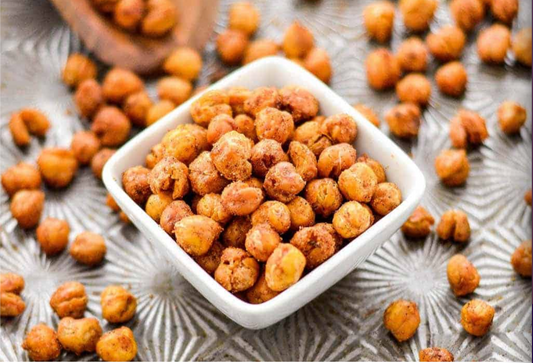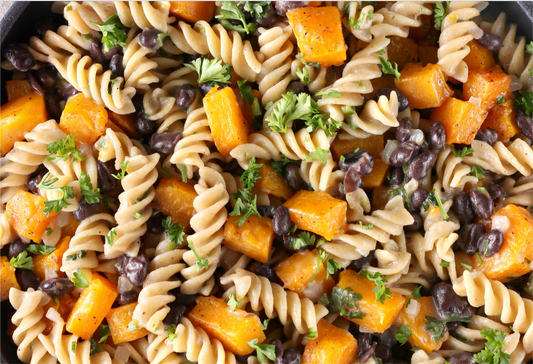The over-training syndrome - ever heard of it?It looks like a cold, grey, rainy day - the most common symptom being fatigue. This will limit your workouts and will also be present at rest. Your muscles will always feel sore and you might find yourself a little more irritable and moody than usual. Studies have shown that athletes who are overtraining have an increased cortisol level, your body’s “stress” hormone. Depending on the type of training you do, your sympathetic or parasympathetic nervous system takes a beating and you’ll no longer be able to sustain usual heart rate or usual recovery rate while training.
It’s no secret that in order to see improvements you have to train hard. Rest makes you stronger. Breaking down your muscles over and over again without giving them time to recover does not.Instead of pushing yourself to the point of overtraining and then learning your lesson, let’s try and prevent this before it happens.
Over training can take forms in a couple different ways. Pushing your body to complete exhaustion by adding on multiple metcons or lifts after you’ve already taken a beating from your first hour of training. Or training full throttle 7 days a week without taking a day of rest. Unless you’re a dedicated competitive athlete, have slowly adapted to this type of volume, or are superman, this is much more taxing on your body than you think.
If this sounds familiar, let’s take a look at why you might be over training in the first place.
You can’t out-train a bad diet. It really is one of the hardest things to hear and even more difficult to fully understand and apply to your training. I actually think it might be the most difficult thing athletes try to understand. You’re overtraining because you’re trying to be the super magic unicorn who will finally prove everyone wrong - that yes, you can out-train a bad diet. You’re adding in extra workouts and more volume because maybe you had first, second and third breakfast.
This idea came to me only recently as I found myself trying to, once again, be that super magic unicorn. I used to be very guilty of this. I would create my own hybrid program of multiple WODs, accessory work, lifting etc. until I felt that I had put enough work in. Most of the time I would leave the gym feeling like I hadn’t done enough for the day. I would leave unsatisfied and would deem that workout a “bad workout”. Following a program and sticking to it was always incredibly difficult. I would blame the program for not seeing results and quickly change it up, or again, add more volume. Last year I decided to once and for all get my nutrition in check. Around this time, I started following a training program. This was the first time in my life I stuck to the program. I would enter the gym, do what was programmed for the day and I would always feel like it was enough. This time, I knew it was enough. I was seeing results. The program was working. I was eating to support the training I was doing.
At the end of the day, it isn’t your program that’s giving you issues - it’s your dinner. Focus on giving your 100% during every workout, no matter what it may be, and don’t forget that your nutrition requires 100% as well.
Not everyone has time to even risk over training and maybe you’re reading this article saying “God, even if I did want to workout all day every day, I would never be able to.” Your nutrition plays a huge role in that one hour you spend at the gym. Don’t let that effort go to waste. Fuel the hour properly so you know you’re able to give 100%, and then leave the gym confidently knowing that you did enough.
Here are few easy things to consider to make sure your diet it supporting your training:
Eat - A balanced diet is one of the most important elements to prevent overtraining. You have to eat enough to support what you’re putting your body through in the gym but not so much that you’re taking in more energy than you're expending. If you're looking to lean out, this is especially true. Talk to a nutrition coach or work one-on-one with a coach to make sure you’re eating the proper amount of food to get to your goals.
Don’t be afraid of carbs - They’re your friend. Carbohydrates are your body’s most preferred source for energy. Getting enough carbs and topping up glycogen stores after depletion makes sure that you’re ready to go for your next session. It also helps with overall alertness and energy levels for the rest of the day after your hard training session. Working with a coach can help you eliminate the trial and error of trying to find the amount of carbohydrates that works for you and your training regimen.
Be aware of your deficiencies - Take the time to get tested for any possible micronutrient deficiencies. If you’re feeling sluggish all the time (and have eliminated the possibility that your diet is to blame), check your b12 and iron levels. In the winter, make sure to take vitamin D!
As previously mentioned, working with a coach can help teach you lots about your body and what you need in order to optimize performance levels. We often forget that nutrition, although incredibly important, isn’t the only factor that can help or deter us from living a healthy lifestyle. With BODZii, we prioritize not only nutrition but also other lifestyle factors that come into play when looking to achieve certain goals. Mood, stress levels, and sleep quality are all at the top of our list when checking off things that can enhance our day-to-day life and also day-to-day performance in the gym.
Work with a BODZii Coach and start learning what’s best for your body and your lifestyle. If training and performance is your number one priority, we’ll guide you on how to eat to properly fuel your workouts and achieve your ideal body composition leaving you feeling confident that your training program is effective. If you’re generally active but your goals lie outside of the gym, we’ll make sure that your time is well spent in the gym and that the rest of your lifestyle choices are made to support whatever goals you may have.
I look forward to working with you.
-Coach Robyn
Sources:
Mark Jenkins, MD http://www.rice.edu/~jenky/sports/overtraining.html




